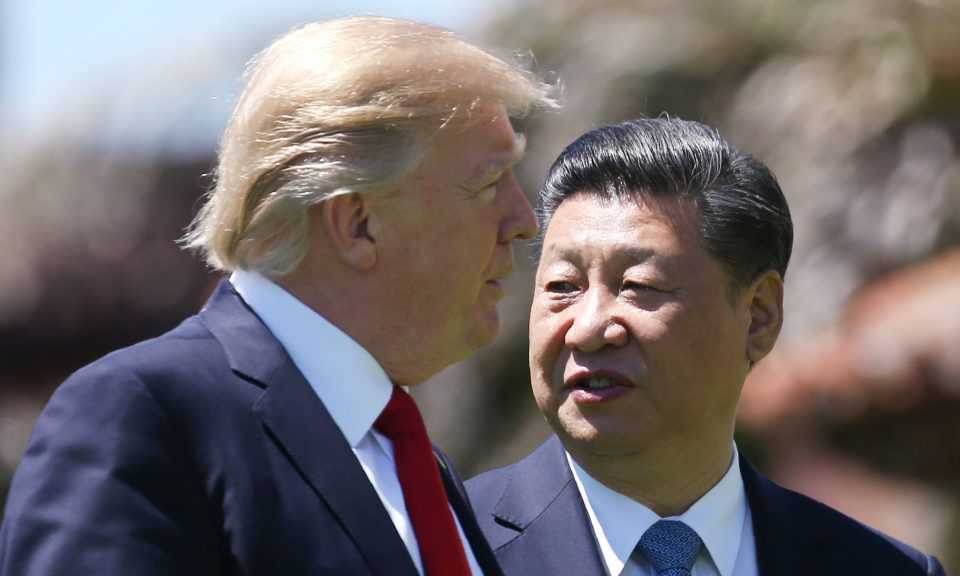Trump’s trade war is a circular firing squad
13 September, 2018

Pundits are engaged in an irresistible debate: who miscalculated more on trade – Donald Trump or Xi Jinping? A good argument can be made either way.
The US president erred significantly when he argued: “Trade wars are good, and easy to win.” Not when your foe is the leader of a proud government whose legitimacy relies on looking strong and resolute.
Xi’s miscalculation in Beijing was thinking the “America First” leader was bluffing. Clearly, Trump wasn’t. But the next misstep is all Trump’s as he turns on multinational companies that long made America’s economy great.
“The goal is to ‘decouple’ the world’s two largest economies by encouraging US firms to invest less in China and more back home,” says Arthur Kroeber of Gavekal Research. “Given this aim, what will cause Washington to ease up on its tariff pressure is not any action by China, but evidence that American firms have changed their ways. This will be a long time coming.”
A self-inflicted wound
If that time ever comes. Trumponomics has already created a circular-firing-squad dynamic between trading partners. While aimed at China, Trump’s tariffs are pitting the US against Europe, Canada, Mexico and giving Japan, South Korea and others reason to stop taking calls from the White House.
But Trump’s ambivalence toward America’s top CEOs is a self-inflicted wound, and a lasting one.
Ford Motor Co recently passed on becoming Exhibit A of Trump’s desire to reclaim America’s manufacturing mojo. After Trump stated as much in a Sept. 9 tweet, Ford explained it was not feasible to make models like the Focus Active in the US.
At the same time, Trump’s tariffs make it pointless to assemble models in China for US import. That leaves Europe, where Harley-Davidson also is moving production.
Apple, too. Trump wants CEO Tim Cook to stop assembling iPhones in China, moving jobs to the US instead. Aside from sharply higher US labor costs, about 90% of the smartphone’s parts are made abroad, the vast majority of which come from the East Asian supply chain. Transporting all those chips, batteries, camera modules and other components to the US, and paying Trump’s tariffs, makes zero sense.
Direct investments in China
There are myriad other case studies that bely US Trade Representative Robert Lighthizer’s oft-stated advisory: if you want to avoid our import penalties, make things at home. To amplify the point, regulators increased scrutiny of Chinese companies investing in America and US ones selling technology to the mainland.
This choose-us-or-them policy has many problems. One, Kroeber says, is that US companies have more than $250 billion of direct investments in China, ginning up nearly $500 billion in mainland sales each year.
“For many companies, China is their biggest and fastest-growing market. In a growing number of sectors, it is simply not a viable business strategy to shun the China market.”
If an American multinational isn’t there, it will lose market share and profits, running afoul of shareholders. Extrapolate this dynamic a bit further, and the rising stock market Trump touts on a daily basis might not be so vibrant.
“And in the other direction,” Kroeber says, “plenty of US local governments are hungry for the investments in manufacturing and infrastructure that China offers.”
With his expanding trade war, Trump is thinking small. His administration would get far more mileage out of policies to lower trade barriers, incentivize innovation, offer education assistance to increase productivity and competitiveness and attract even more foreign talent. Trump is doing the opposite all around, while betting all on mercantilism.
Consider too how Trump is being forced to bail out farmers and other industries being devastated by China-related tax hikes. That money, of course, will be borrowed from China. Talk about circular financial logic.
China’s engagement with Africa
China is going the other way. Trump aside, says Ian Bremmer of Eurasia Group, the real story of the moment is the growing pre-eminence of Chinese commercial relations and how the global order is also accommodating expanded Chinese political, technological and military influence.
“This,” Bremmer says, “is greatest in China’s immediate neighborhood and among the world’s poorest markets, most dependent on their engagement with China – like in Africa, where Chinese trade is already four times greater than African trade with the US, but quickly growing beyond that.”
Do US-based multinationals really want to sit this megatrend out? Hardly. That leaves CEOs in an impossible position: ignore Trump’s re-shoring requests, while avoiding his wrath when he realizes everyone is waiting for 2020, when Americans presumably elect a president who grasps basic economics.
Xi has already signaled he won’t bow to Trump Nation. US multinationals may have a harder time dodging Trump’s circular firing squad. Wall Street valuations, too.
